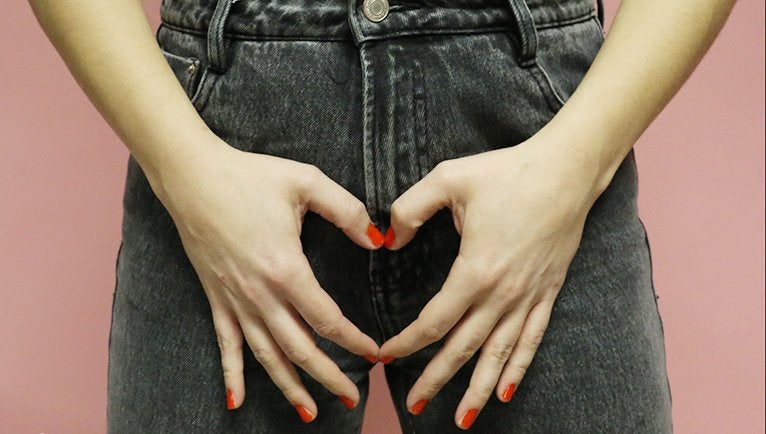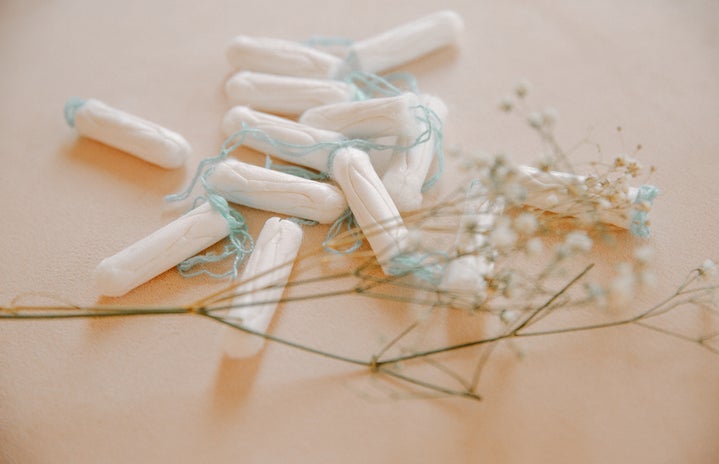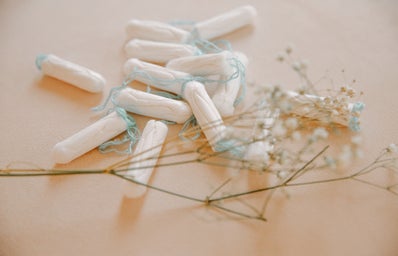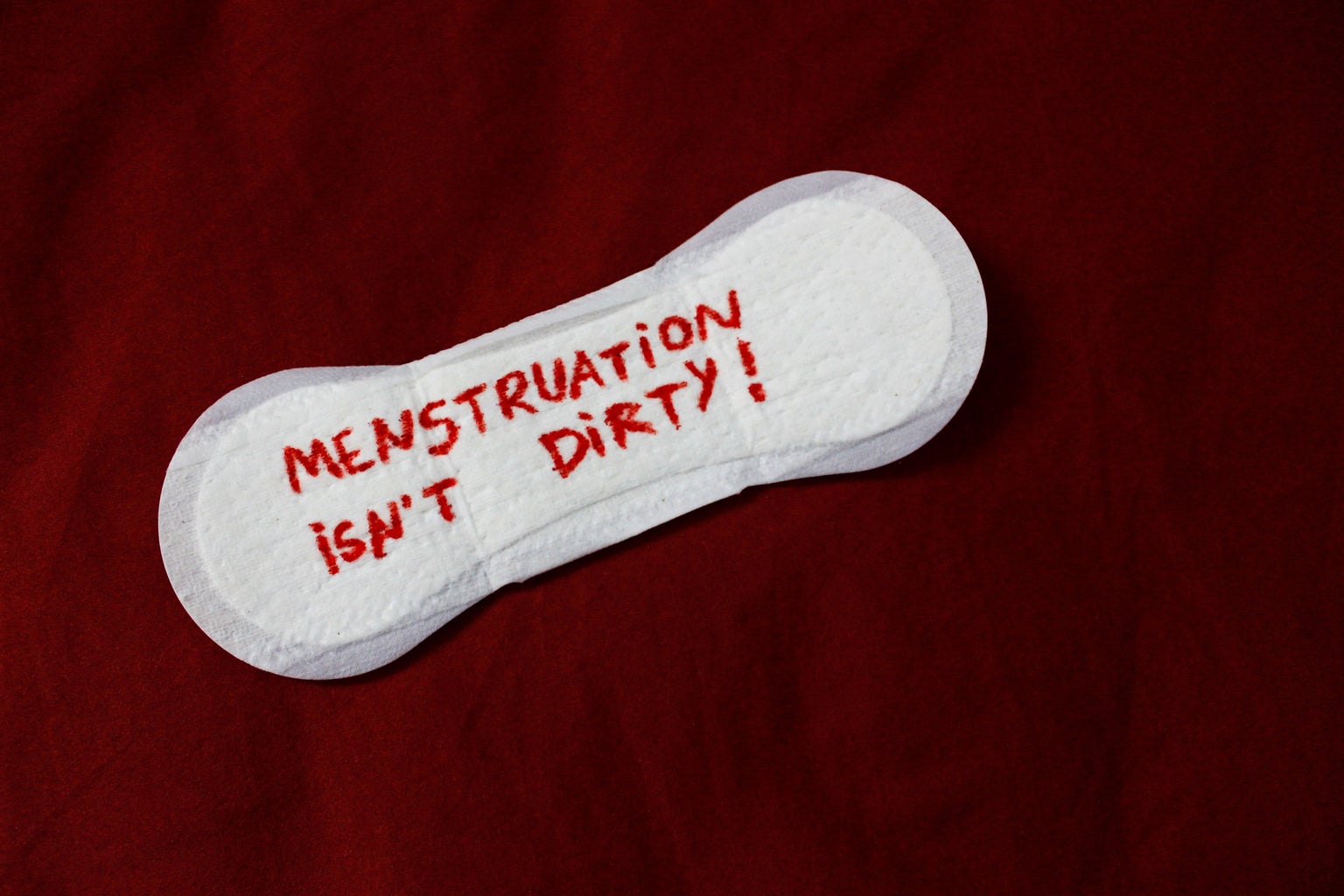The Her Campus National Editors write about products we love and think you’ll love too. Her Campus has affiliate partnerships, so we get a share of the revenue from your purchase. All products are in stock and all prices are accurate as of publication.
It’s time for some serious period talk. You could really consider hormones to be the messengers of the body, relaying messages to all parts of the body and responsible for initiating many vital bodily functions to keep you alive. While the saying “don’t shoot the messenger” is fitting, hormones may be to blame for pre-menstrual syndrome (PMS) and painful menstrual cycles. When we start our periods, our estrogen and progesterone levels drop, causing us to experience the typical symptoms of PMS. Now that we have established what exactly is causing all of this, we can start to dive deeper.
Fellow menstruators… welcome to debunking period myths.
The numbers surrounding periods are staggering: 800 million people menstruate every day, which is 1.8 billion people per month who experience a menstrual cycle.
If you’re sitting there thinking, this number is lower than I thought, factor in the number of people below the age of menstruation, post-menopause, or all the pregnant individuals of the world who don’t get their periods while carrying, and many who do not have access to a proper diet to sustain a menstrual cycle.
Nonetheless, 1.8 billion per month is an insane number, but how much do those who menstruate really know about what goes on? If 26% of the population menstruates every month, how come we aren’t all educated on the matter? Most of all, why is it stigmatized?
myth #1: irregularities & dirty Blood
People have little to no control over when they start to menstruate. As someone who has been on the birth control pill for almost 3 years now, I can testify that in no way does the pill help me control my flow. Cycles may fluctuate depending on your diet, stress levels, exercise, weight loss/gain, and even changes in sleeping patterns.
Irregular periods have plagued many of us; those without uteruses will never know the embarrassment and stress from an unexpected flow. Not only is it upsetting to find that your favorite pair of pants are suddenly ruined, but there is also this idea that period blood is less clean than regular blood.
Period blood is just that, blood. There is a stigma that because of the organ it comes out of, it is less clean when in reality it is no different from a nose bleed, except one is more cyclical of course.
Myth #2: Tampons – Instigators of Toxic Shock Syndrome
Users of tampons are always warned of the risks of Toxic Shock Syndrome. It seems as if the two go hand in hand given that they are always mentioned in conjunction with one another. As an attempt to clear the air, Toxic Shock Syndrome (TSS) is rare and it is not caused by tampons.
A bacteria known as Staphylococcus Aureus is able to produce toxins that cause TSS. Both males and females are susceptible for Toxic Shock Syndrome. “Staph” can actually be found on the nose, armpits, vagina, and groin and wont always cause a harmful reaction like TSS. Although using tampons increases the risk of TSS, know that it is not the cause.
Myth #3- Tampax Ads and the Go Get ‘Em Falsity
Those Tampax ads where the lady sticks the tampon up like it’s a drain stopper and is suddenly revived, energized, and ready to run a marathon is not me, and it’s probably not any of us. Even Olympic athletes experience the ills of their periods, affecting their performance.
One study shows that heavy menstrual bleeding may have adverse effects on fatigue, certain qualities of life, and iron deficiency anemia. Within the study, 63.4% of women were presented with an anemia diagnosis. I cannot stress enough the importance of iron supplements before, during, and after your cycle. I personally take Innate Iron Response which can be purchased off Amazon (though check your local pharmacy/drug store before to avoid Jeff Bezos).
Myth #4- Periods Don’t equal sick days
Despite evidence that menstruation directly inhibits certain conditions such as anemia and fatigue, Olympians and many menstruators across the globe aren’t allowed to place any blame on periods because, sadly, we live in a man’s world (for now). People are put down, called dramatic, and labeled weak when trying to explain to non-menstruators the weight it has on daily functions. They will never understand, but know the data has your back, and if you need to lay in bed all day to cope with cramps, nausea, headaches, body aches, or whatever symptoms you experience, go for it. Damn the man.

Praise the period, it’s your body’s built-in warning system
Periods aren’t fun and they definitely deserve a lot more praise and way less stigma. Many of us have disconnected from our periods; we need to bridge that gap. You and your period are eternally kindred and your flow can help you know when your body is in need of something. Is your period irregular? Maybe you need more sleep, have been overworked and stressed, or maybe you haven’t had enough to eat. Besides proving you aren’t pregnant, your period can be the best indicator of when something just isn’t right.
Treat yourself with kindness when you’re on your period. You’re shedding the lining of your uterus which can be uncomfortable and draining, but it’s a part of being you.
If you suffer from extremely heavy periods or experience long gaps between your cycles, consider personal habits. If the issue continues, reach out to your doctor. I was clueless about a condition called hypothalamic amenorrhea until, one day, my period completely disappeared and remained that way for over 6 months. Again, your period is like a built-in check-up from your body saying, “Hey, all is well” or “Hey, I need something I’m not getting”.
Stop listening to those around you and start tuning in to your body, especially your period because, at the end of the day, it’s pretty cool that we can make a whole living thing and we shouldn’t feel bad or embarrassed about that for a second.



